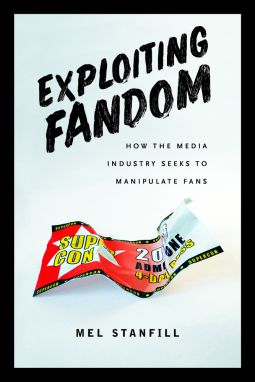This was such an interesting read to me! When I requested it, I wasn't sure what to expect. I have minor academic experience of media studies and essentially no background in business, sports or any of the topics this book could come under (apart from a personal interest in demographics). The introduction was very dull for me as it is essentially just a list of the methodology. This was probably necessary as this seems to have been adapted from a dissertation or some other academic paper, but it wasn't really a great start to the book. Thankfully it was uphill from there.
By far my favourite sections were the first two chapters which focus on how sports and the media identify and view their fans in terms of demographics. Some fascinating points were made about how the industries assume default fan is a white male and how this influences both their marketing and reaction to fan behaviour. The author uses a wide range of sources and examples which creates a very in-depth and insightful look at fandom as a whole. I loved this section and thought it was excellently written.
The next bit was about the legality and fan's knowledge of the law. I must admit, I did skip most of this section. Law has never been interesting to me and while I was curious about fanfiction and the laws surrounding that, most of the focus was on fan's perception of the law without clarifying what the actual law was. I can see this being interesting to some but sadly it was not for me.
The final chapters are what I suppose the book is mainly about-that is, how fans engage in free labour due to their love of a work/sports team and how industries exploit this. These parts were fairly interesting and again, made some very good points. I would have liked to see this section expanded more with specific examples though. Every other section has lots of examples which illustrate the arguments well but there weren't many to be found in this bit. I know fandom's mere existence is a form of free labour in itself (promoting etc) but it still could have been interesting to find anecdotes of fans' work being used professionally or something similar.
Overall, I think this book's topic wasn't actually as for me as I thought it would be but I still enjoyed it immensely. It has well-written, thoroughly researched content and a cohesive narrative that brings everything together beautifully. There are some well-argued points to be made here and I think it raises some interesting questions. I would definitely recommend this book if you have any interest in fandom and how the industries treat their fans. Just be aware that it is an academic work and so some parts might be a bit dry or less compelling than others.
Overall Rating:


No comments:
Post a Comment